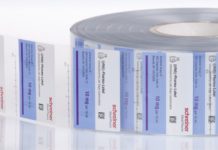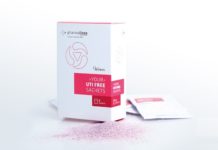Threshold Pharmaceuticals, Inc, a clinical-stage biopharmaceutical company specializing in the development of novel pharmaceutical products and technologies for the treatment of cancer, announced interim data from its two Phase 2 proof-of-concept clinical trials of tarloxotinib
Outlined its plans to focus company resources on the more clinically-advanced evofosfamide program as well as an earlier-stage anticancer candidate, TH-3424.
“While the response observed in our squamous cell carcinoma of the skin study with tarloxotinib was encouraging, the overall results from the two studies didn’t meet the activity thresholds required to move forward the molecule forward despite the promising results seen in preclinical translational studies,” said Barry Selick, Ph.D., Chief Executive Officer of Threshold. “As a result, we are making no further investment in this program. Instead, we plan to build on the efforts of our collaborator, Dr. Michael Curran of The University of Texas MD Anderson Cancer Center, to demonstrate the potential therapeutic value of adding evofosfamide to immune checkpoint inhibition, to continue to pursue discussions with Japanese regulatory authorities regarding potential registration pathways for evofosfamide, and to advance TH-3424 through IND-enabling toxicology studies with the goal of reaching the clinic in 2017. We plan to provide additional operational guidance in the fourth quarter of 2016.”
About the Tarloxotinib Program
Tarloxotinib bromide (the International Nonproprietary Name, previously known as TH-4000), or “tarloxotinib”, is a prodrug designed to selectively release a covalent (irreversible) EGFR tyrosine kinase inhibitor under severe hypoxia, a feature of many solid tumors. The interim results from the two Phase 2 proof-of-concept clinical trials evaluating the efficacy and safety of tarloxotinib are outlined below. Both clinical trials utilized a Simon two-stage design to ensure adequate efficacy as measured by tumor response to justify continued enrollment. Tumor response was evaluated at baseline and every eight weeks using the Response Evaluation Criteria in Solid Tumors (RECIST). As a result, and taking into consideration the totality of the clinical data with tarloxotinib, enrollment in both Phase 2 clinical trials and further development of tarloxotinib will be discontinued.
Tarloxotinib in patients with recurrent or metastatic squamous cell carcinoma of the head and neck (SCCHN) or skin (SCCS) (TH-CR-602):
In the first stage of the SCCS arm of the trial, a confirmed partial response was observed in 1 of 7 patients. According to the study design, the response rate was sufficient to expand the trial to evaluate additional patients.
However, of the 22 SCCHN patients who were assessed, although 8 achieved stable disease, none achieved a confirmed partial response.Tarloxotinib in patients with EGFR-mutant, T790M-negative, advanced non-small cell lung cancer (NSCLC) (TH-CR-601):
In the first stage of the trial, a response rate greater than or equal to 4 out of 19 patients was the threshold for expansion and continuation of the trial. Per protocol response is defined as tumor shrinkage (a partial or complete response).Although 7 of 21 assessed patients achieved stable disease, no patients achieved a confirmed partial response.Threshold licensed exclusive worldwide rights to tarloxotinib from the University of Auckland, New Zealand, in September 2014.
About the Evofosfamide Program
Evofosfamide (previously known as TH-302) is an investigational hypoxia-activated prodrug of a bis-alkylating agent that is preferentially activated under severe hypoxic tumor conditions, a feature of many solid tumors. On December 6, 2015, the Company announced the outcomes of two Phase 3 studies (MAESTRO and TH-CR-406/SARC021) of evofosfamide stating that neither study met its primary endpoint. However, the Phase 3 trial (MAESTRO) data demonstrated meaningful improvement in overall survival in a subgroup of 116 patients from Japan, in which the risk of death was reduced by 48 percent for patients on the treatment arm compared to patients on the control arm. In addition, translational data evaluating the role of hypoxia in mediating treatment resistance to cancer immunotherapy conducted at The University of Texas MD Anderson Cancer Center suggests that evofosfamide may play a role in improving the efficacy of “checkpoint antibodies” such as ipilumimab. The Company’s evofosfamide efforts are as follows:
Plan to initiate a Phase I clinical trial with four disease specific expansions of evofosfamide in combination with immune checkpoint antibodies in collaboration with researchers and clinicians at The University of Texas MD Anderson Cancer Center.Pursue discussions with Japanese regulatory authorities regarding potential registration pathways for evofosfamide for treatment of pancreatic cancer.
About Threshold Pharmaceuticals
Threshold is a clinical-stage biopharmaceutical company focused on the discovery and development of drugs and diagnostic agents targeting tumor hypoxia, the low oxygen condition found in microenvironments of most solid tumors as well as the bone marrows of some hematologic malignancies. This approach offers broad potential to treat a variety of cancers. By selectively targeting tumor cells, we are building a pipeline of drugs that hold promise to be more effective and less toxic to healthy tissues than conventional anticancer drugs.
Contact:
Denise Powell
denise@redhousecomms.com
510.703.9491


























